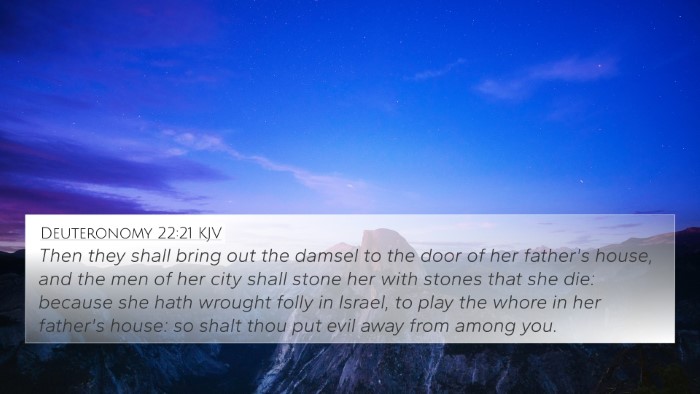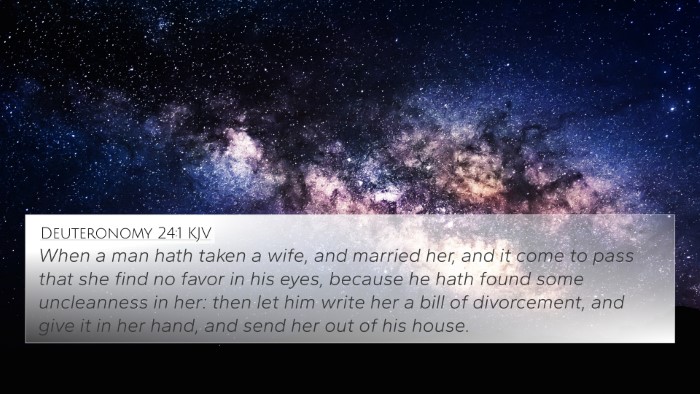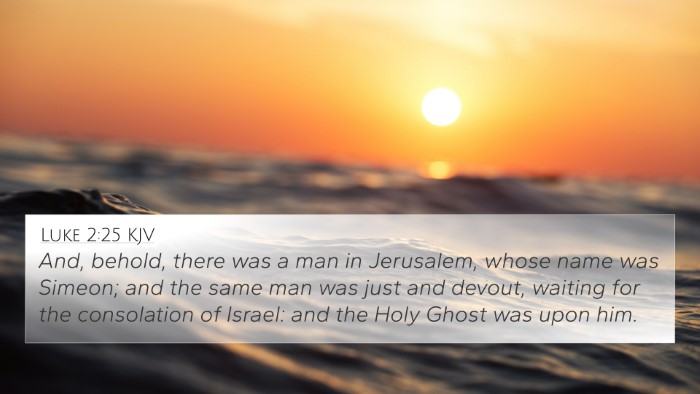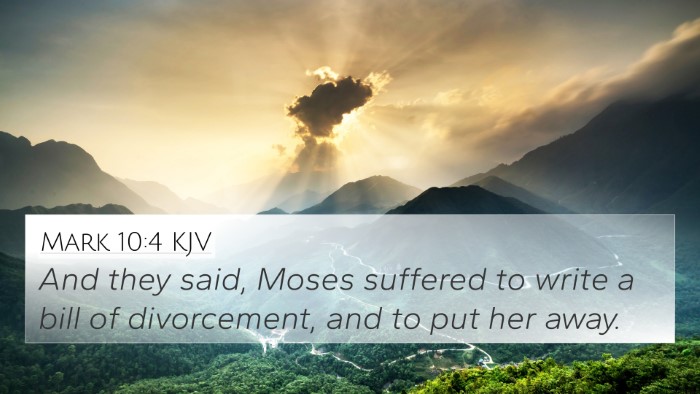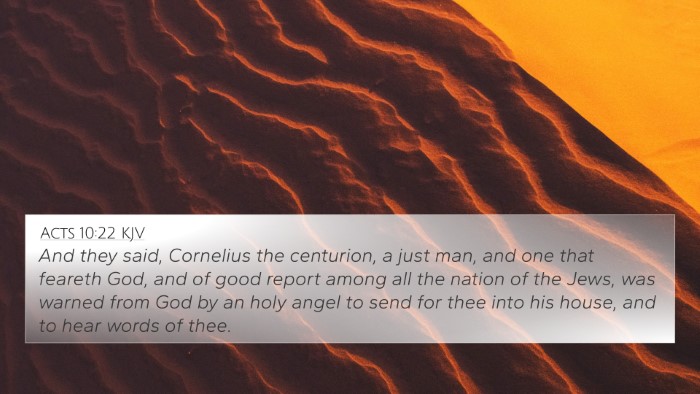Understanding Matthew 1:19
Verse: Matthew 1:19 (KJV) - "Then Joseph her husband, being a just man, and not willing to make her a publick example, was minded to put her away privily."
Summary of Matthew 1:19
This verse captures a pivotal moment in the narrative of the birth of Jesus Christ, focusing on Joseph’s character and intentions regarding Mary amid troubling circumstances. Joseph is described as a "just man," signifying his righteousness and adherence to the law. He faces a dilemma after discovering Mary's pregnancy, a situation that could lead to public shame for her. Rather than exposing her, Joseph considers a quiet separation.
Thematic Insights
The insights derived from public domain commentaries highlight several themes present in Matthew 1:19:
- The Character of Joseph: Matthew Henry emphasizes Joseph’s righteousness and compassion, stating he embodied the law’s spirit rather than its letter, showing mercy over judgment.
- Privacy in Personal Struggles: Albert Barnes comments on Joseph’s intent to act privately, reflecting a wise and sensitive approach to personal turmoil and societal expectations.
- Faith and Trust in God: Adam Clarke notes that Joseph's contemplative nature reveals a choice grounded in faith, leaning on divine guidance during uncertain times.
- The Importance of Just Actions: Joseph's decision is marked by integrity and justice, themes explored by Matthew Henry, who views his actions as a model for how to handle conflict and shame.
- Foreshadowing Jesus’ Mission: This verse serves as a precursor to Jesus’ eventual ministry of grace, as Joseph exemplifies an early understanding of mercy.
Bible Verse Cross-References
Matthew 1:19 relates significantly to several other passages, enriching our understanding through cross-referencing:
- Deuteronomy 22:23-24: Discusses the law regarding betrothal and the consequences of infidelity.
- Genesis 38:24: A narrative about Judah and Tamar that parallels situations of scandal and righteousness.
- Luke 2:19: Observes Mary’s contemplation of the events surrounding Jesus’ birth, resonating with Joseph’s internal struggle.
- Galatians 5:22-23: Lists the fruits of the Spirit, aligning with Joseph’s character traits of love, patience, and self-control.
- John 3:17: Highlights the purpose of Jesus’ coming, which embodies the mercy Joseph begins to show.
- Ephesians 5:25: Exhorts husbands to love their wives sacrificially, an implicit lesson from Joseph’s compassion.
- Romans 12:19: Instructs believers not to take vengeance, reflecting Joseph's choice to forgive rather than expose Mary.
Exploration of Related Themes
Several thematic links emerge when comparing Matthew 1:19 with other scriptures:
- Compassion over Criticism: Joseph's choice not to publicly shame Mary mirrors Jesus’ interactions with sinners, such as the woman caught in adultery (John 8:3-11).
- God’s Plan vs. Human Understanding: In the face of personal crisis, Joseph’s eventual trust in divine revelation (Matthew 1:20-24) shows the tension between what appears and the unseen guidance of God.
- The Role of Faith in Difficult Decisions: Joseph's initial decision reflects general principles of wisdom and faith found throughout the Bible, such as Proverbs 3:5-6, which encourages trust in the Lord for direction.
Conclusion
Matthew 1:19 provides profound insights into the character of Joseph and the nature of mercy. His actions in response to challenging circumstances serve as a model for believers on how to navigate personal and social dilemmas. By examining related scriptures, we uncover deeper truths about righteousness, compassion, and the overarching narrative of redemption through Christ.
Exploring the connections between Bible verses, as established through tools like a Bible concordance or cross-reference guide, enhances our understanding of Scripture. Thematic Bible verse connections deepen anyone's study, revealing the intricate weaving of messages across both the Old and New Testaments.



